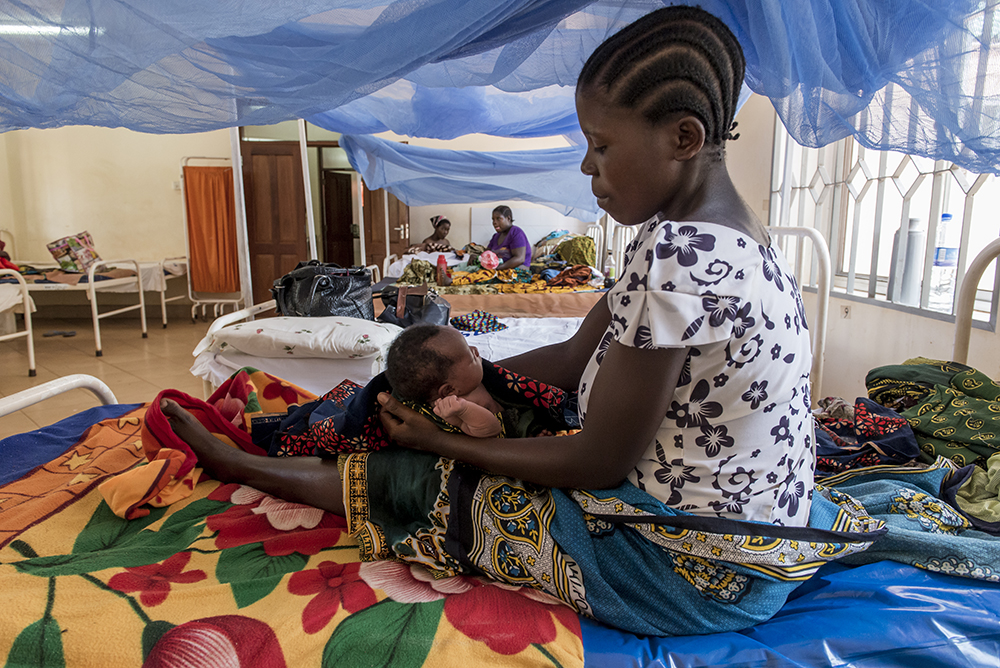
A new mother at Thamini Uhai (courtesy Thamini Uhai)
Thamini Uhai, an affiliate of Vital Strategies in Tanzania, embarked on a new strategy for its maternal health program: introducing and promoting birth companionship for women delivering in health facilities in Kigoma, where the initiative has been working since 2008. In most government health facilities in Tanzania, women are forced to give birth in a room of strangers, as friends and family members are not allowed to accompany women into labor and delivery rooms. Birth companions can offer emotional and psychological support as well as practical help such as helping the laboring woman walk, breathe, and change position during labor. Birth companionship has been shown to confer a variety of benefits for the mother and newborn, including shorter labor, fewer medical interventions such as cesarean section or vacuum delivery, and improved experience of care. Continuous support during childbirth is recommended in the WHO’s current “Standards for Improving Quality of Maternal and Newborn Care in Health Facilities.”
Recently in Kigoma, 87 participants came together to design a “Code of Good Practice” defining the roles and responsibilities of birth companions. Health care providers from Thamini Uhai-supported facilities joined with government officials, community leaders, and women who recently delivered, as well as Thamini Uhai clinical and program staff, to work over four days to draft a document to guide this pilot. New York-based Vital Strategies advisors Samantha Lobis, maternal health technical advisor, and Karen Schmidt, senior communication advisor, also attended the workshop.
Next steps will include engaging with communities to describe birth companionship and encourage pregnant women to choose a female companion, or msindikizaji, to support her during labor and delivery. A comprehensive maternal health communication campaign will use radio and community channels to promote facility delivery, birth planning, and awareness of danger signs as well as birth companionship. The birth companionship initiative, funded by Blue Lantern, will continue through 2019 and will be closely evaluated to gauge the potential for broader implantation in Tanzania.